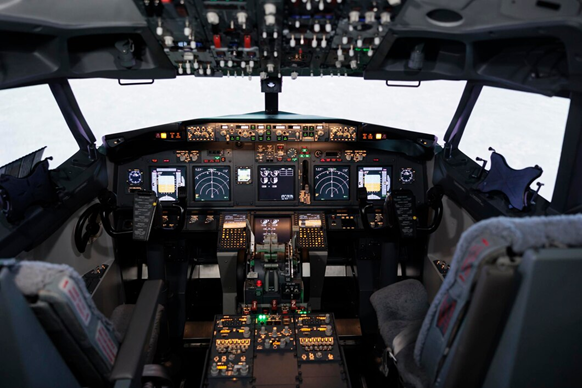Avionics and Instruments Maintenance
The electronic systems used on aircraft, artificial satellites, and spacecraft are called avionic. At PHILLY-TECH students will learn about different operations and maintenance of avionic systems, communications, and navigation systems. Students will learn the avionic covers, the internal sensors, and control systems within an aircraft, from airborne communication and navigation systems to stealth aircraft design and flight control systems. Students will learn about different avionics of the airplane’s electronic instruments, such as radio communication devices and equipment, radar systems, and navigation aids.
This program will provide the knowledge and skills required to work on avionics systems and radar equipment in the aviation industry. It’s important to note that the specific requirements and course hours may vary depending on the training institution and the FAA’s current regulations. Always ensure that the program meets the FAA’s standards and requirements.
Avionic and Radar Maintenance Certificate and Technician Course Program:
This program covers the maintenance and repair of avionics and radar systems used in aircraft.
Duration: The program typically spans around 18 to 24 months, with the duration depending on the training institution.

Diploma in Avionics and Instruments Maintenance
AIRVIO 100: Basic Avionics Systems (40 hours):
- Introduction to avionics systems
- Avionics components and terminology
- Safety procedures in avionics maintenance
AIRELC 100: Electronic Principles (80 hours):
- Basic electronics theory
- Digital and analog electronics
- Semiconductors and integrated circuits
AIRCOM 100: Aircraft Communication Systems (60 hours):
- Communication systems in aircraft
- VHF, UHF, and satellite communication
- Troubleshooting communication systems
AIRNAV 100: Navigation Systems (80 hours):
- Navigation systems and instruments
- GPS and inertial navigation systems
- Maintenance and calibration of navigation equipment
AIRRDR 100: Radar Systems (80 hours):
- Radar theory and operation
- Radar components and maintenance
- Radar system troubleshooting
AIRVIO 100: Avionic Instruments (60 hours):
- Flight instruments and indicators
- Gyroscopes and pitot-static systems
- Calibration and maintenance of flight instruments
AIRILS 100: Instrument Landing Systems (ILS) (40 hours):
- ILS components and operation
- ILS installation and maintenance
AIRRDRV 100: Avionics and Radar Safety and Regulations (40 hours):
- FAA regulations and safety procedures
- Human factors in aviation maintenance
AIRWIR 100: Aircraft Wiring and Harnesses (80 hours):
- Aircraft wiring and connectors
- Cable harness installation and maintenance
- Electrical troubleshooting
AIRTHOE 100: Hands-On Experience (400 hours):
- Practical training on avionics and radar maintenance, including installation, inspection, calibration, and repair of systems.
AIRTPRE 100: Certification Preparation (40 hours):
- Review and preparation for the FAA certification exams for Avionic and Radar Maintenance.
Students have to contact the school administration if they want to take extra credits or transfer credits to pursue the Diploma Certificate or Associate of Applied Science (A.A.S.) Degree in their field of interest. Students will select required number courses in each of the areas listed to meet general education requirements graduation for the A.A.S. Some of these courses can be transferred directly from and to the university system and may be substituted for recommended courses on the outline. Students should speak with an advisor before doing so these selective courses are required for all students.
- Selected Communication Course (Choose two for Diploma or three for the Associate)
ENGL 100: Fundamentals of Speech
CPL 100: Career Planning
CPL 101: Communications and Career Strategies
ENGL 101: Composition
ENGL 102: composition
- Selected Mathematics Course (Choose two for Diploma or three for the Associate)
MATH 100:General Math
MATH 101:Intermediate Algebra
MATH 102:College Algebra
- Selected Social Science Course (Choose two for Diploma or four for the Associate)
ECON 105:Leadership
ECON 101:Principles of Microeconomics I
ECON 102:Principles of Macroeconomics II
SOC 101:Introduction to Sociology
PSYC 101: Introduction to Psychology
HIST 101: History
